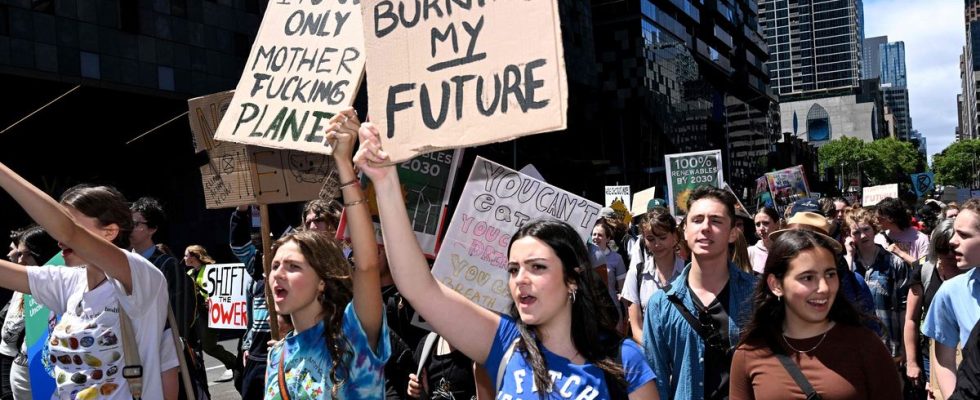The Paris administrative court said no. The NGOs of “L’Affaire du siècle” demanded a financial penalty of 1.1 billion euros against the French state, which they accuse of climate inaction. But the court dismissed them this Friday. In his judgment, he considers that the “reparation of the ecological damage was late but is now complete”, judging that “the State, in accordance with the injunction made to it, had adopted or implemented measures of a nature to repair the damage in question.
He thus followed the opinion of the public rapporteur who, during the hearing on December 8, declared the latest data concerning national CO2 emissions, namely a drop of 4.3% for the year 2023 and of 2.7% in 2022, “allowed us to consider that the damage had been fully repaired”.
A first judgment noted “ecological damage”
The French state was once again sued by several environmental defense associations (Notre Affaire à Tous, Greenpeace, Oxfam) united under the banner “L’Affaire du siècle”, denouncing France’s non-compliance of its commitments to reduce greenhouse gas emissions.
In February 2021, the Paris administrative court ruled in favor of them in a first judgment, declaring the State responsible for breaches of its commitments and the “ecological harm” that results from them. Then in October of the same year, justice ordered that the 15 million tonnes of CO2 equivalent (MtCO2e) emitted in excess of France’s objectives in 2015 be compensated by “December 31, 2022 at the latest” 2018.
“Purely cyclical” emissions reductions
The NGOs considered that this judgment had not been implemented and this time demanded financial penalties as part of a new procedure launched in June 2023. This penalty of 1.1 billion euros corresponded to nine semesters of delay already accumulated, according to calculations by NGOs, which rely on the Quinet method, named after a senior official who published a report a few years ago on “the value of climate action”.
One of their arguments was that the drop in greenhouse gas emissions observed in France both for the year 2022 (-2.7%) and for the first half of 2023 (-4.3%) was linked to “purely cyclical” and external factors, such as a mild winter last year or the energy crisis linked to the war in Ukraine, and not to the implementation of State actions. The court ruled that these elements had certainly “could have influenced the reduction in CO2 emissions”, but that there was “no need to neutralize the effects”.

